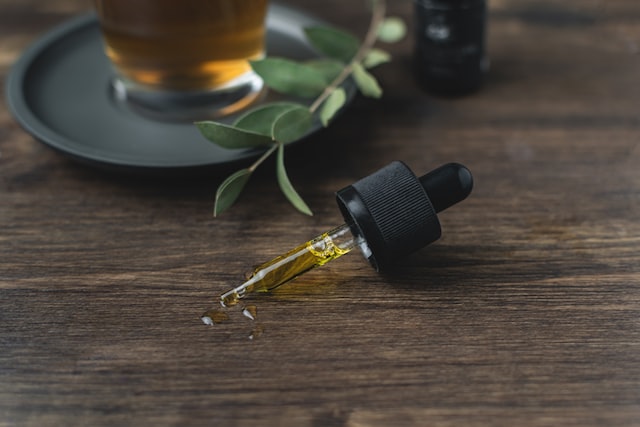People suffering from depression have for years been treated by the medical community using antidepressants made with selective serotonin reuptake inhibitors (SSRIs) intended to increase serotonin levels thought to be responsible for clinical depression.
Then, in July 2022, a groundbreaking study by the University College of London revealed that scientists could find no evidence that serotonin levels or activity are responsible for depression. This shocking discovery has left the mental health community seeking alternative treatments to help those suffering from depression. One commonly discussed natural medicine is CBD.
Table of Contents
What is CBD?
CBD is the abbreviation for Cannabidiol, the second most prevalent active ingredient in cannabis sativa. Cannabidiol, like its counterpart THC (tetrahydrocannabinol) and scores of other compounds found in cannabis, is known as a cannabinoid.
A common misconception is that CBD and THC have the same effects because they are both cannabinoids extracted from the cannabis plant. Hemp and marijuana are very similar with respect to their phytochemical makeup, but there are some key differences between the two.
Marijuana has higher concentrations of the psychoactive compound THC and lower concentrations of CBD. Products derived from marijuana are strictly regulated on both the federal and state level.
Hemp, on the other hand, has higher CBD concentrations and lower THC levels. Hemp-derived CBD products follow regulatory guidelines to ensure that they contain less than 0.3% THC. Because of this very low THC content, hemp CBD oils produce none of the euphoric feelings commonly associated with marijuana. Products formulated with hemp-derived CBD are available in all 50 states with varying degrees of legal controls over their accessibility.
How CBD Works
CBD interacts with vital systems in the human body that regulate how we function.
In the early 1990s, scientists discovered the endocannabinoid system (ECS) while studying how THC affects the body. The ECS is made up of three parts: endocannabinoids, enzymes, and receptors. This system helps to regulate stress response, appetite, memory, mood, reproduction, fertility, and sleep function. Endocannabinoids are naturally occurring molecules produced by the body and are very similar to cannabinoids found in cannabis plants.
CBD, when introduced to the body, mimics the action of some endocannabinoids, and binds to receptor sites to help regulate the central or peripheral nervous systems. As cannabidiol binds to these receptors, it helps to balance the body’s ability to regulate itself. Emerging research suggests that the reason CBD and other cannabinoids work is because they appear to have the same mechanism of action and regulatory effects on the body as naturally occurring endocannabinoids.
Determining Dosage of CBD
A 2022 study published by Frontiers in Psychiatry centered around using CBD for self-healing depression indicates that CBD dosage can vary based on the individual’s current health, body weight and frequency of use. An incredible 86% of users with anxiety or depression taking up to 200 mg of CBD daily reported feeling better. Some users taking low doses of CBD under 50 mg daily also reported positive benefits.
Many people who suffer from depression also experience other mental health concerns like anxiety. Research suggests that addressing anxiety may also result in improved mood. CBD appears to be an excellent option for this health condition. In one study, a single high potency 600 mg dose of CBD resulted in relief of anxiety symptoms for a majority of participants.
Even though a single dose may produce some benefits for users, a common dosage characteristic among patients involved in many other studies is that frequent daily use is usually necessary to experience the full effects of CBD. Using CBD daily maintains blood serum levels for more sustained relief of symptoms.
Here are some considerations when getting started with CBD:
First-Time Users
Those just starting out taking CBD can begin with between 25 mg to 50 mg per day for the first week or so.
Weight Based Dosing
After several days of use, a new user should be able to gauge their individual response to CBD and adjust their dose to reflect their preferred strength (mild, average, maximum).
Other Factors
Factors like metabolism, pre-existing medical conditions, the delivery method used (sublingual, oral ingestion, vaping, or topical), and the frequency of use will all play a role in how much CBD should be taken and how effective it will be.
Source Cannabiva.com: CBD Dosage Chart: How Much CBD Should I Take?
Adverse Effects
Very few adverse effects have been shown to occur with CBD users. Some commonly reported side effects that are similar to placebo are nausea, irritability, and fatigue.
Less than 1% of CBD users report negative effects.
How Long Does CBD Last?
People who use CBD report positive changes such as feeling more relaxed, and mellow and experiencing less pain. Relief and how long CBD stays in your system are directly tied to consistent use.
Peak benefits are felt in the first three hours of use. But the effects of CBD often last for at least several more hours, and, for some users, may even continue for up to one week. Since CBD’s positive effects naturally wane over time, smaller doses should be used throughout the day to maintain uninterrupted results.

